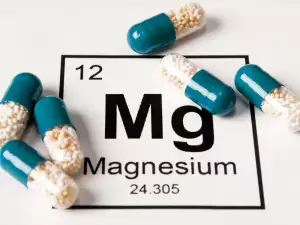Magnesium is a mineral that is most commonly found in nature in the form of various chemical compounds with calcium. It is found in seawater, mineral springs and the green pigment of plants. It is well known that magnesium is a vital ingredient in the human and animal body and that it is necessary for the activity of about 300 different enzymes.
About 60% of the magnesium in the body is stored in the bones. It is an integral part of blood plasma. It is also found in skeletal muscles, heart, nervous system, liver. It regulates the activity of the nervous system and ensures normal transmission of impulses between nerve fibers. It acts as a catalyst in many enzymatic reactions.
Without it, the metabolism of carbohydrates, proteins and fats cannot take place. It stabilizes platelets and prevents the development of thrombosis. Other functions of magnesium are related to reducing the level of lipids in the blood, preventing heart rhythm disorders and the formation of kidney stones.
Magnesium can be called an anti-stress element due to its ability to regulate the strength of the body's response to aggression: cold, quarrel, sudden loud noise, etc.
The deeper magnesium deficiency, the more sensitive, nervous and anxious the individual becomes. It reacts too strongly to external events and this is associated with an even greater need for magnesium. This leads to a vicious circle that can lead to exhaustion and depression.
One of the first symptoms of magnesium deficiency is chronic fatigue, which most people try to overcome with high consumption of coffee, cola and tea. Unfortunately, these stimulant drinks increase neuromuscular excitability and aggravate fatigue.

When using estrogen-based contraceptives, magnesium is retained in the bones and does not circulate normally in the body. Most women taking birth control pills have insufficient levels of Mg in their blood and should carefully intake this element through food.
The recommended daily intake of magnesium for men and women aged 18-60 years is 330 mg for men and 280 mg for women, respectively. When low levels of magnesium in the body are found, the most convenient and affordable way to normalize them is the natural intake of magnesium with foods such as green leafy vegetables, almonds and other nuts, bananas, seeds, cereals.

















Comments